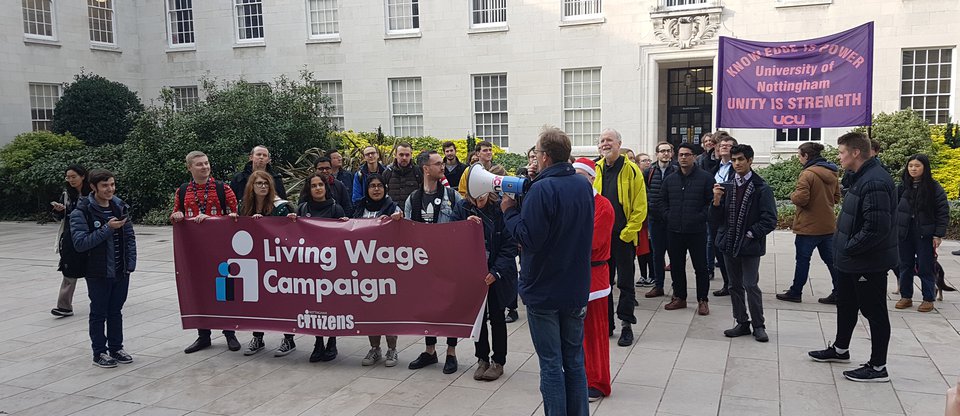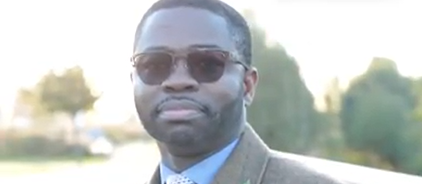It's Ordinary People Who Are Campaigning For, And Winning, A Living Wage
Read this article, originally posted in the Huffington Post , by one of our Community Organisers about how low paid workers should not lose hope - workers can find allies in their communities and organise with us to get more employers paying the real Living Wage.

Today, the new Living Wage rates of £9.00 in the UK and £10.55 in London were announced , a vital pay boost for a record 180,000 workers, which helps them keep their heads above water financially.
The Living Wage campaign was started in 2001 by workers and community members in East London working with Citizens UK. Fast-forward to 2018 and over 4,700 employers have accredited as Living Wage employers, putting over £800 million back into the pockets of hard-working people. Few if any of those who came together in East London at that time would have expected their campaign to grow into something this big.
Watch our video on the history of our campaign by clicking on the image above
But the real Living Wage has a story behind the statistics. It’s down to the hard graft and sacrifice of workers in alliance with active citizens from churches, schools, charities, trade unions and many other organisations up and down the country whose campaigns are behind the growing number of employers choosing to go further than the legal minimum.
Workers who put their own jobs on the line to stand up to CEOs in shareholder AGMs to tell their story of life on low pay. Church leaders who have turned out their congregations on cold winter mornings to demonstrate outside banks. Schools whose children are staging mass write ins to the big Premier League football clubs paying poverty pay in their region.
In a nutshell, our work uses a method of community organising similar to the social change favoured by the likes of US civil rights activist Rosa Parks during the US civil rights movement and other iconic and lesser known American civic leaders.
Community Organising recognises that all political matters are ultimately local. In fact, when an employer operates in your community, you can strike a relationship with them – even in the case of corporate giants. Many of these employers have good people working there who will respond positively once we’ve made the case.
Take football stadiums and Premier League clubs for example, they typically employ many people in the local community on low wages. In London, my organisation Citizens UK, which first brought community organising to the UK, has been able to work with local schools and churches to identify workers and families affected and equip them with the skills and knowledge to hold employers to account. We’ve planned eye catching actions on the stadium grounds, worked with fans to bombard their club chairman with mail and make a compelling case to wealthy clubs pay players tens of millions. Last year I was able to help the community in Newham take West Ham United over the line – the club are now a proud Living Wage employer.
Community organising brings local people who are members of Churches, Mosques, Charities and other local institutions that make up the social fabric of our communities to come together around a shared purpose. How? By enabling us to turn our personal anger and pain – such as the struggle of life on low pay, poor housing or community safety – into a collective injustice that can be acted on by all.
So if your employer is leaving you in a gig economy job, or below a real Living Wage, unable to live with dignity and security, don’t lose hope. You can find allies in your community and act. We are all actors in the arena of public life: by telling our stories and by working with others to build our power gradually, one campaign win at a time, for the greater common good. We can find justice, respect and win change – not sympathy or charity.





